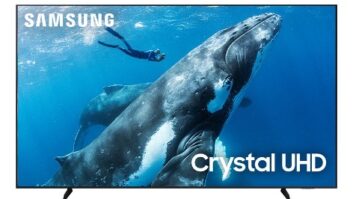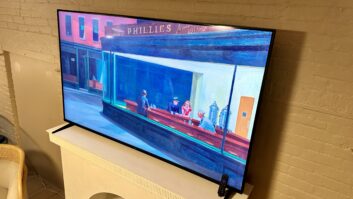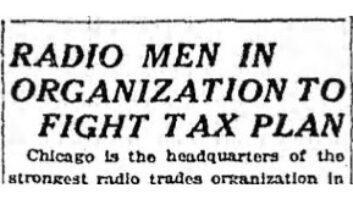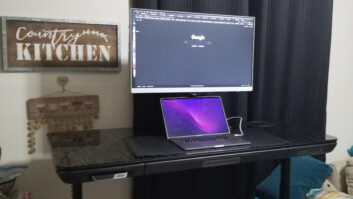Los Angeles — The movie industry’s copyright-infringement lawsuit filed here in U.S. District Court against RealNetworks could open up a new front in the industry’s war against home video servers, which copy DVDs and stream their content throughout the house.
Movie studios represented by the Motion Pictures Association of America (MPAA) allege that Real violated the Digital Millenium Copyright Act (DMCA) when it began offering RealDVD, a $29.99 software package that copies movie DVDs to a PC’s hard drive for storage and playback. Up to four additional PCs can be registered with Real at a cost of $19.99 each to play copies saved to an external USB hard drive connected to the first computer registered to a user’s RealNetworks account.
The DMCA, the studios said in their suit, “prohibits the manufacturing or trafficking of any technology or
product, service or device that is designed for the purpose of circumventing measures that effectively protect copyrighted titles.”
The studios fear that Real’s software, and by inference DVD-ripping movie servers, will encourage consumers to rent and borrow DVDs and thus “cause immediate and irreparable harm” to the studios’ DVD rental and sales revenues, the suit contends. The studios are seeking a temporary restraining order, permanent injunction, and damages against RealNetworks.
The studios also contend that the successful defense by server maker Kaleidescape in a California state court has no bearing on the validity of its lawsuit. The MPAA suit alleges a violation of the federal DMCA, but in the Kaleidescape case, the trial focused on an alleged breach of contract under state contract law. In that suit, a state superior court judge ruled in early 2007 that the company did not, under California law, breach the terms of a license granted to it by the DVD Copy Control Association (CCA). The CCA is the authority that licenses the Content Scramble System (CSS) encryption and authentication technology used on DVDs and in DVD players to prevent unauthorized copying. That case, which is a civil but not criminal case, is currently under appeal by the CSS before a state appeals court.
“Real’s CSS license is no defense to its DMCA liability,” the studios contend in their suit.
Real and Kaleidescape don’t agree. In a preemptive suit filed before the MPAA filed its suit, Real asked a U.S. District Court in Northern California to rule that it fully complies with the terms of its CCA license. For his part, Kaleidescape chairman/CEO Michael Malcolm told TWICE that, based on the California ruling, it would be “immune to a DMCA claim.” The Act states that companies or individuals “can’t circumvent an effective [copy-control] technology,” he said. By definition, he continued, “circumvention means that you don’t have permission.”
MPAA disputes that claim. In the Kaleidescape case, the suit contends, “the trial judge’s decision turned on whether the DVD CCA license expressly prohibited the defendant’s conduct. Relying on state rules of contract interpretation, including that uncertainty is to be construed against the drafter of the contract, the trial judge held that prohibitions … asserted by the DVD CCA as the basis for its breach claim were not clearly ‘part of the contract signed by the parties.’”
Under the DMCA, however, “the proper inquiry is whether a copyright owner affirmatively authorized the circumvention,” the suit continues. “Under federal law, rights holders must affirmatively authorize rights, or they are presumed to retain them.”
Neither Real nor Kaleidescape describe their products as designed to circumvent copy-control technology. In fact, Real said its software “maintains the DVD encryption intact” and does “not enable users to distribute copies of their DVDs.” So does Kaleidescape.
For their part, the studios contended that although RealDVD doesn’t break CSS encryption, it nonetheless violates previous court rulings on the DMCA, including one in which a court ruled that circumvention is not limited to breaking encryption. That ruling, the studio assert, found circumvention to include “avoiding, bypassing or impairing” an access- or copy-control measure, “any of which may be accomplished while leaving the measure physically intact.” The suit concludes, “By using authorized technology for an unauthorized purpose, Real avoids, bypasses, and impairs those very measures. In short, RealDVD circumvents CSS’s access- and copy-control protections.” The purpose is unauthorized under DMCA, the studio’s stressed, because copyright owners did not expressively give their permission to Real “to make permanent, playable copies of content on computer hard drives or to gain access to these unauthorized copies.”
Calls to Marantz, Fuze and other suppliers of DVD-ripping servers weren’t returned in time for this posting.













